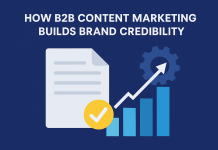In the B2B world, effective data management is crucial for generating high-quality B2B leads. By collecting, managing, and protecting customer data, businesses can gain valuable insights into customer behavior and preferences.
Implementing proper data management strategies enables companies to target their audience accurately, personalize marketing efforts, and ultimately drive more qualified leads.
This blog will provide you with tips to manage your B2B data and it will lead to the ultimate success.
What is B2B data management?
Storing, collecting, managing, and protecting customer data is called B2B data management. To get success and the best results from this data the implementation of proper strategies is very important.
Businesses can study their customer behavior and mindset through proper understanding and analysis of available data.
Components of B2B data management include data architecture, data modeling, data administration, data quality, data integration, data analytics, data security, and data governance.
Understand your B2B data needs
For effective data management and B2B lead generation, you must understand your B2B data needs. You can start by identifying the essential data points that help you connect with potential customers.
For example, you can study your customer buying behavior, their preferences, and engagement patterns. To make it successful you can collaborate with your teams. Together you can decide whether the data collected is either supporting your business goals or not. Accordingly, you can make the required changes in your strategies.
By understanding your B2B data needs you can make smarter decisions for your business. These smarter decisions will lead to better relationships with your customers and more qualified leads.
Role of data management in B2B lead generation
In the successful generation of B2B leads data management plays an important role. With the right kind of data, you can target your audience more accurately. This will help you to personalize your marketing efforts to fulfill your potential customer’s specific needs and interests.
This personalized approach makes it easier to connect with prospects and convert them into leads. Keeping your data clean and structured allows you to build good relationships with potential clients and avoid missing out on significant chances.
Good data management leads to improved relationships and higher-quality leads for your company.
Data Management Tips to increase your B2B leads
1# Maintain Current Data
Keeping your data current is essential for accurate targeting and effective lead generation. Regularly updating contact information, company details, and engagement history ensures you’re reaching the right people with relevant messages.
Outdated data can lead to missed opportunities and wasted efforts, so make it a priority to refresh your records consistently. Implement processes to automatically capture and update data in real time, minimizing the risk of using stale information.
By maintaining current data, you ensure your marketing and sales teams have the most accurate and relevant information to engage potential leads effectively.
2# Prioritize Data Accuracy
Accurate data is the cornerstone of successful B2B lead generation. Ensuring that your data is correct and precise helps you make informed decisions and avoid costly errors.
Implement data validation checks and regularly audit your database to identify and correct inaccuracies. Encourage team members to input data carefully and train them on best practices for maintaining accuracy.
The more reliable your data, the more effective your targeting and personalization efforts will be, leading to higher-quality leads and better conversion rates.
3# Improve Data Security
Data security is critical in protecting sensitive information and maintaining trust with your prospects and customers. Implement robust security measures like encryption, secure access controls, and regular security audits to safeguard your data from breaches and unauthorized access.
Ensure that your data handling processes comply with relevant regulations, such as GDPR, to avoid legal repercussions. By improving data security, you not only protect your business but also demonstrate to potential leads that you take their privacy seriously, which can enhance trust and credibility.
4# Regularly Clean Your Database
A clean database is essential for efficient lead generation. Regularly remove outdated, duplicate, or irrelevant information to keep your database streamlined and effective.
This process, known as data cleansing, ensures that your marketing and sales teams are working with the most accurate and relevant information. A clutter-free database reduces confusion, improves targeting, and enhances overall productivity.
Implement automated tools to regularly clean your database and set up processes to capture only the most useful data, ensuring that your lead generation efforts are focused and effective.
5# Maximize Data Segmentation
Data segmentation allows you to divide your data into smaller, more targeted groups based on specific criteria such as industry, company size, or purchasing behavior.
By maximizing data segmentation, you can tailor your marketing messages to the unique needs and preferences of each segment, leading to more personalized and effective outreach.
Segmentation helps you focus on high-potential leads, improving conversion rates and overall ROI. Regularly review and refine your segmentation criteria to ensure that you’re reaching the right audience with the right message.
6# Automate Data Processes
Automating data processes can significantly enhance your lead generation efforts by reducing manual errors and saving time. Use automation tools to streamline tasks like data entry, updating records, and segmenting leads.
Automation ensures that your data is handled consistently and accurately, freeing up your team to focus on more strategic activities.
Additionally, automation can help you capture and act on real-time data, enabling more responsive and effective lead nurturing. By automating data processes, you can increase efficiency, reduce costs, and improve the quality of your lead generation efforts.
7# Use Data Analytics for Insights
Data analytics is a powerful tool for understanding customer behavior and refining your lead generation strategy. By analyzing data, you can uncover trends, identify patterns, and gain insights into what drives your leads’ decisions.
Use these insights to tailor your marketing efforts, optimize your campaigns, and focus on high-value prospects. Data analytics can also help you forecast future trends and adjust your strategy accordingly.
Regularly review your analytics to ensure that your data-driven decisions are based on the most current and relevant information, leading to more effective lead generation and better business outcomes.
Conclusion
Mastering B2B data management is key to increasing B2B leads. By maintaining accurate, secure, and up-to-date data, and leveraging tools like segmentation, automation, and analytics, businesses can enhance their marketing strategies and build stronger customer relationships.
Effective data management not only improves lead quality but also drives long-term business success.
I hope you find the above content helpful. For more such informative content please visit B2B-Reports.









